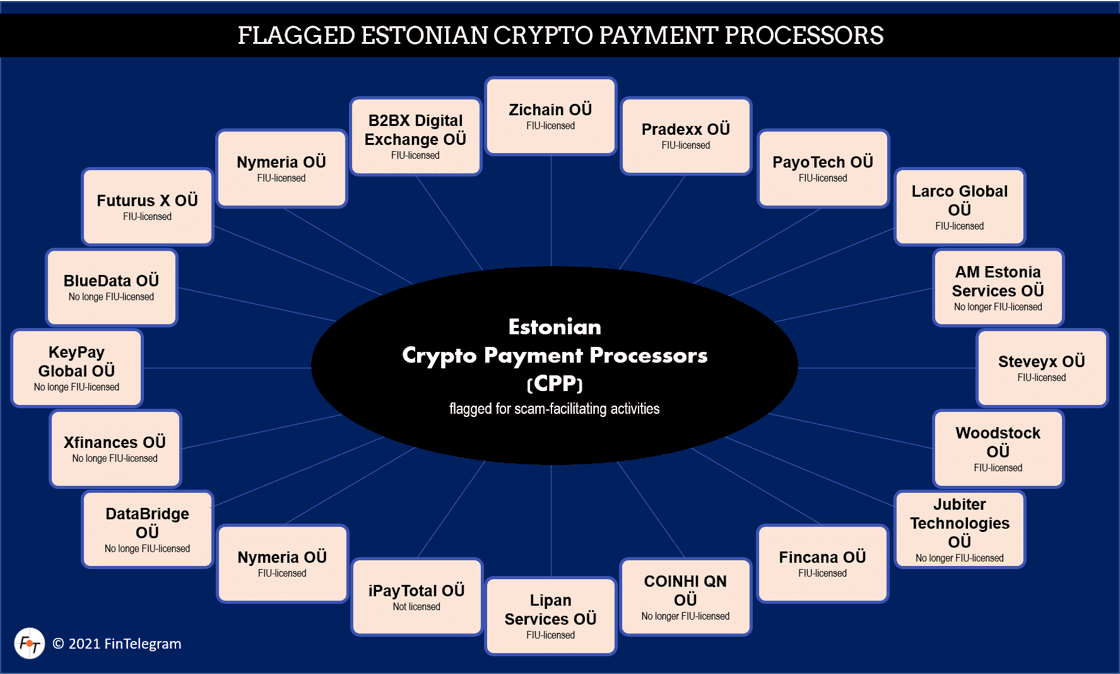For most experts, digital currencies are the future in one way or another. For a few months now, online payment pioneer PayPal has also been accepting bitcoins and other cryptocurrencies. Estonia is currently the epicenter of European crypto payment processors. As of mid-2020, the Estonian FIU had issued more than 3,000 licenses (report here). Unfortunately, many of them are facilitating scams, illegal activities, and money laundering. We have drafted a list of Estonian Crypto Payment Processors (CPP) that have come to our attention in scams.
We at FinTelegram are huge fans of decentralized and blockchain-based cryptocurrencies (a/k/a digital currencies). However, it is also a fact that cryptocurrencies are not really understood by regulators today. We want to use our findings to contribute to the sustainable development of CPPs and their regulation.
The list is certainly not complete and is constantly being updated. It includes those companies that come to our attention in the reviews that are carried out on an ongoing basis. Not every company included in the list is automatically bad. Scam customers may time and again pass even proper KYC procedures—no question about that. However, if a CPP pops up permanently, their KYC procedures are either pointless, or scammers are intentionally welcome. It is not FinTelegram’s job to make the final assessment. This is the responsibility of the relevant regulator FIU and the law enforcement agencies.
